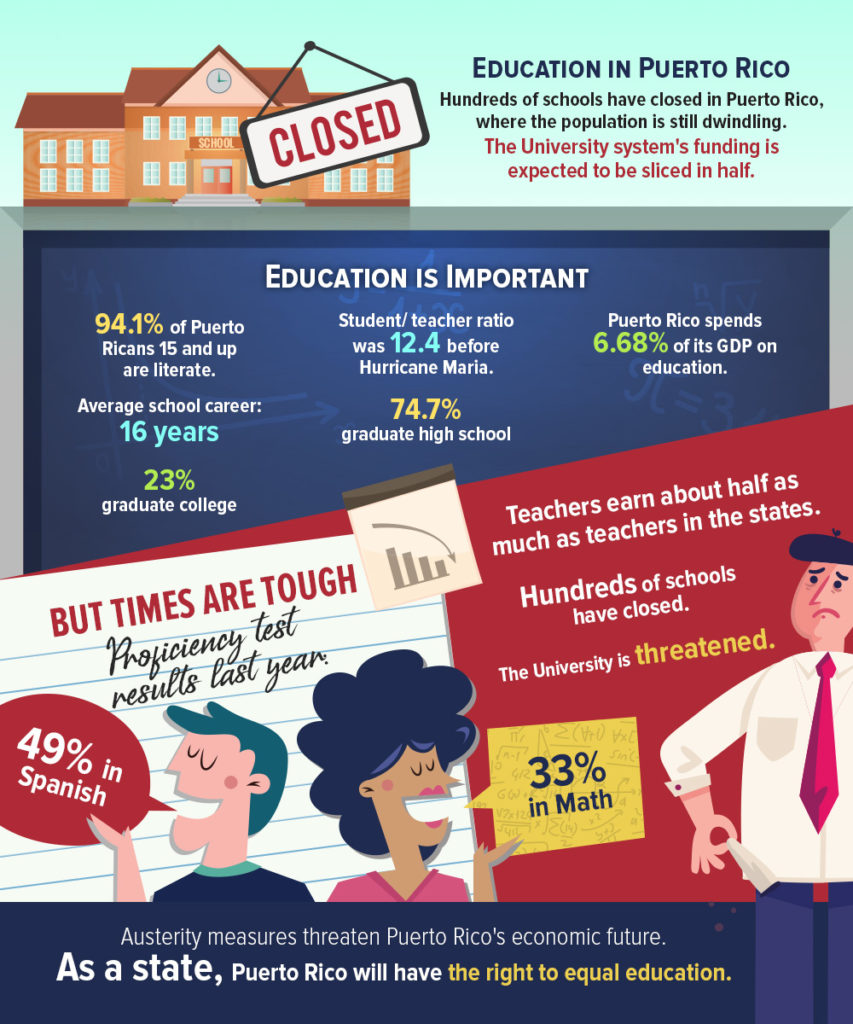Miguel A. Cardona, the U.S. Secretary of Education, sent a letter to Governor-elect Jenniffer Gonzalez-Colon proposing a transformation for Puerto Rico’s educational system. “You are the leader that will take this transformation to the next level as Governor and ensure that the work of decentralization continues throughout the island,” he wrote.
The letter introduce the Puerto Rico Education Transformation Guidebook.
Problems
The report begins with a list of problems with the current educational system in Puerto Rico. Students are not performing as well on the Island as in the states, teachers (like doctors) are leaving Puerto Rico for greener pastures in the states, and families are leaving Puerto Rico for better educational opportunities.
The report identifies two top priorities: decentralizing decision-making and de-politicizing education on the Island.
Decentralizing the system
Puerto Rico is the 7th largest school district in the United States. With most decision-making accomplished in the central office, it’s hard for schools to respond to local needs. This is particularly important in the case of natural disasters, but even now Puerto Rico’s schools face serious problems in terms of infrastructure and resource distribution.
In the states, local schools have multiple sources of funding and rely on the federal government for just 9% of their revenue. In Puerto Rico, 35% of funding comes from the federal government. This limits schools and leads to poor pay for teachers. On the other hand, recent federal investments in the schools through the American Rescue Act, while the funds have helped, have skewed the budgets and made it hard to do long-range budget planning. One-time funds have been used for hiring and pay raises, but are not sustainable.
The report also calls for stronger local school boards to encourage citizen participation. Other specific recommendations include establishing a Secretary of Education for Puerto Rico, holding Town Hall meetings for education, and changing laws to formalize a decentralized structure for the schools.
Eliminating political influence
The second strategy is mentioned as a top priority in the report, but is given much less detail. Here is what the report says about removing political influence:
“The second strategy decouples the political structures from the selection process for school and district leaders. Utilizing a merit-based model increases trust, prevents attrition, and ensures the best candidates are selected for the work of leadership, regardless of party-affiliation.”








No responses yet